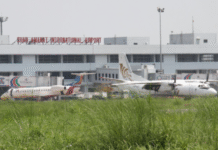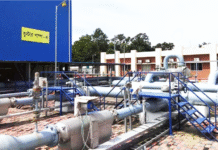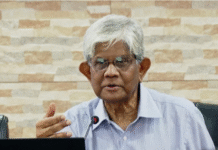Achieving SDGs: Bangladesh lags behind most S Asian countries
 According to the report, among South Asian Association for Regional Cooperation (SAARC) countries, Bangladesh ranks sixth only before Afghanistan and Pakistan
According to the report, among South Asian Association for Regional Cooperation (SAARC) countries, Bangladesh ranks sixth only before Afghanistan and Pakistan
February 19th, 2020
Quite unlike the Millennium Development Goals, Bangladesh’s progress in the Sustainable Development Goals has been as per the expectation so far.
Ranked 116th, Bangladesh is lagging behind all the South Asian countries except Afghanistan and Pakistan, according to the Sustainable Development Goals Report-2019, released by the United Nations (UN) recently.
Four years after signing the 2030 Agenda for Sustainable Development, countries have taken action to integrate the goals and targets into their national development plans and to align policies and institutions behind them.
According to the report, among South Asian Association for Regional Cooperation (SAARC) countries, Bangladesh ranks sixth only before Afghanistan and Pakistan.
Bangladesh scored 60.9 out of 100, while its partner in the region the Maldives ranked 47th socring 72.1, Bhutan 84th with 67.6 points followed by Sri Lanka 93th with 65.8 points, Nepal 103rd with 63.9 points, India 115th with 61.1 points, Pakistan 116th with 55.6 points and Afghanistan 153rd with 49.6 points.
What experts say
Talking to Dhaka Tribune on the report, experts observe that Bangladesh has made praiseworthy progress but others have done better.
Government representatives blame fund shortage for the comparatively lesser performance.
“For the last couple years, we could not generate expected amount of domestic resources, while the international community did not keep their promises of providing funds,” Professor Shamsul Alam, member of the Planning Commission, told Dhaka Tribune.
However, economists and citizen platforms blame slower implementation of government initiatives taken to attain the SDGs.
“We all know that Bangladesh has done good in Millennium Development Goals (MDGs) and it has also done good in SDGs. We quite often do well but SDGs are all about disaggregated,” Centre for Policy Dialogue (CPD) Distinguished Fellow Debapriya Bhattacharya told Dhaka Tribune. 
“Our neighbour and regional partners are moving faster than us. We are running but not faster enough.
“We may be doing better on an average but not at the disaggregated level because of rights and inequality and marginalization.
“There are major areas where we have not done very good. For example, decent work and economic growth, climate change issues, innovations and infrastructure, quality education though enrolment is good,” he added.
How to perform better
Experts suggest a holistic approach and integrated solutions as most of goals are interlink.
“AS the problems are interrelated, the solutions should also be integrated and holistic,” CPD Distinguished Fellow Mustafizur Rahman told Dhaka Tribune.
“For example,” he says, “tackling climate change needs a shift to clean energy, protecting forest and increasing the green areas to required level.”
“As we saw poor performance in the area of private partnership, innovation and infrastructure, there is a need for engagement private sector people,” he says.
“In Bangladesh, there is less investment in research and innovation, which caused the poor performance and it is not possible to overcome it overnight,” former DCCI president Abul Kasem Khan told Dhaka Tribune.
The government should offer incentives and keep investment in research and development out of tax purview to encourage innovation, said the business leader.
“The government is working hard to engage private sector people to attain the SDGs. 30% funds of development projects should come from private partnership,” said Shamsul Alam.
“Our focus is on the Public Private Partnership (PPP) in reaching the targeted investment,” he added.
Trend of the goals
Bangladesh has made significant progress and achieved the goal number twelve — responsible consumption and production, where the score is 96.5 out of 100, the report findings show.
Eradicating poverty, combating climate impacts and ensuring decent wok and economic growth, Bangladesh is on track to achieve these Sustainable Development Goals (SDGs) by 2030, says the report.
The goals of zero hunger, good health and wellbeing, sustainable cities and communities and clean water and sanitation have seen moderate progress but not enough to attain the goals by 2030.
On the other hand, scores are stagnant or increasing at less than 50% of the required rate in the field of affordable and clean energy, life below water, industry innovation and infrastructure, peace, justice and strong institutions and ultimately gender equality.









